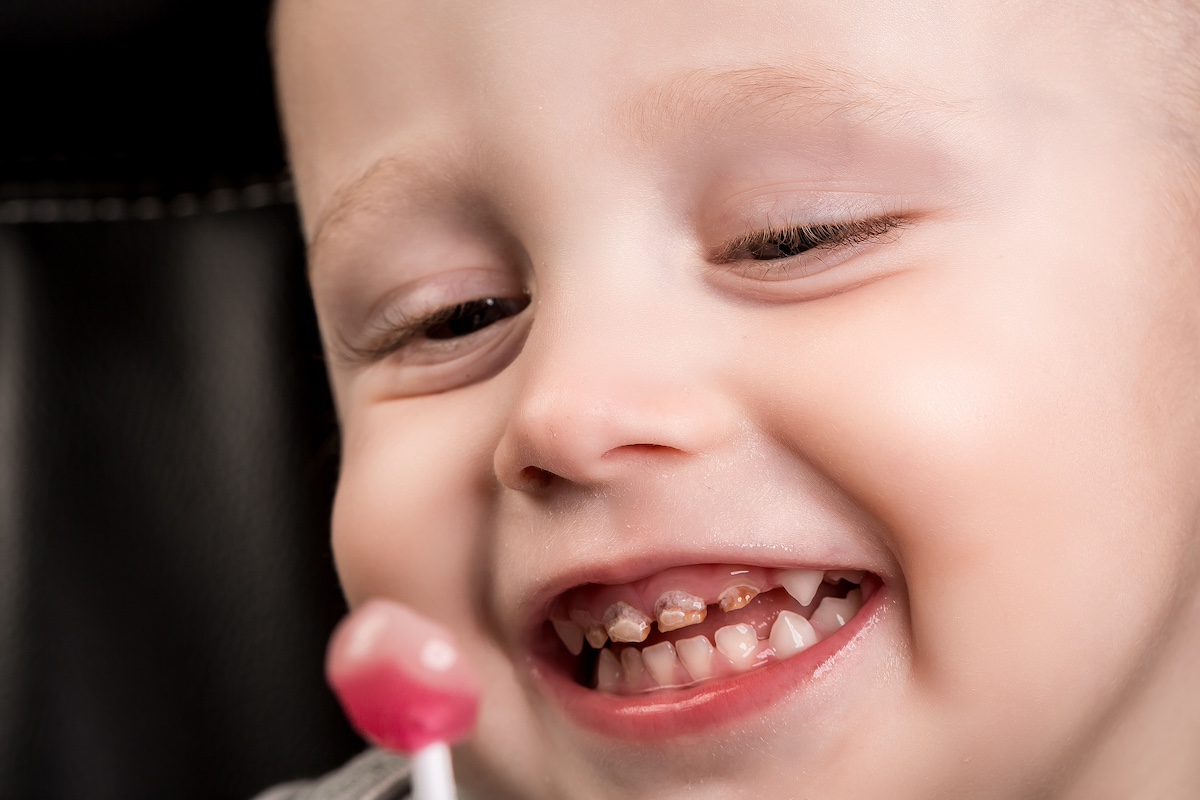Children’s dental health is a subject of paramount importance because it sets the foundation for a lifetime of healthy smiles. As dental professionals, we recognize the significance of addressing common dental issues in children early on. In this article, we’ll explore these issues and provide insights into prevention and care.
The Role of Diet in Dental Health
A well-balanced diet plays a fundamental role in dental health. Nutrient-rich foods provide essential minerals, vitamins, and fiber that are critical for maintaining strong teeth and gums. Calcium, which is present in dairy products and leafy greens, is especially important for developing healthy teeth.
Conversely, foods high in sugar and acid can contribute to dental problems, as you’ll see below. Sugary snacks and beverages can fuel the growth of harmful oral bacteria and increase the risk of tooth decay. Acids in certain foods and drinks can weaken tooth enamel, making the teeth more susceptible to damage.
Educating parents and children about the impact of diet on dental health is crucial. Encouraging the consumption of tooth-friendly foods and minimizing sugary and acidic snacks can significantly reduce the risk of dental issues.
Tooth Decay: A Growing Concern
Tooth decay, sometimes known as dental caries, is a major concern in children’s oral health. It occurs when the bacteria in the mouth interact with sugar and produce acids that gradually erode the tooth enamel. If left unattended, this process can result in cavities, causing discomfort and potentially affecting the child’s overall health.
The risk factors for tooth decay in children include:
- A diet high in sugary and acidic foods
- Poor oral hygiene
- Genetires
Additionally, factors such as insufficient fluoride exposure and a lack of regular dental check-ups can contribute to the problem.
Preventing tooth decay in children involves promoting a balanced diet, limiting sugary snacks and beverages, and encouraging regular brushing and flossing. Professional dental cleanings and the application of dental sealants can also be effective preventive measures.
Early Childhood Caries (ECC)

Early Childhood Caries (ECC) is an aggressive form of tooth decay that primarily affects infants and toddlers. ECC can lead to severe pain, infection, and even tooth loss in very young children. Prolonged exposure to sugary liquids, often via bottles or sippy cups, is a significant contributing factor.
To prevent ECC, it’s crucial for parents and caregivers to avoid putting children to bed with sugary drinks and to encourage the use of a regular cup as soon as possible. Early dental visits, as recommended by pediatric dentists, can help identify and address any emerging dental issues.
Poor Oral Hygiene Habits
Establishing good oral hygiene habits from a young age is essential in preventing dental issues in children. The daily removal of plaque through brushing and flossing helps prevent the buildup of harmful bacteria that can lead to cavities and gum disease.
Parents should supervise and assist children in brushing and flossing until they can effectively perform these tasks on their own. Using a toothbrush and toothpaste appropriate for the child’s age is vital, as it ensures thorough cleaning without causing harm.
Consistency is key in oral hygiene routines. Regular dental check-ups, typically every six months, should also be part of the plan to detect and address dental issues promptly.
Bruxism, AKA Teeth Grinding
Bruxism, the habit of grinding or clenching teeth, is not unusual in children. This unconscious behavior can lead to various dental problems, including tooth wear, fractures, and jaw pain. Identifying the causes of bruxism is essential to addressing it effectively.
Stress, anxiety, misaligned teeth, or even airway issues can trigger bruxism in children. Parents and caregivers should be attentive to signs such as complaints of jaw pain, headaches, or unexplained tooth wear.
If bruxism is suspected, consult a dentist. Custom-fitted nightguards can be prescribed to protect the teeth from grinding during sleep, and addressing the underlying causes can help reduce or eliminate the habit over time.
Malocclusion and Bite Problems
Malocclusion, a misalignment of the teeth or jaws, can cause bite problems and lead to discomfort, difficulty in chewing, and speech issues. Detecting and addressing these problems early is crucial to prevent more extensive orthodontic issues later in life.
Malocclusion can be caused by genetics, early loss of primary teeth, thumb sucking, or pacifier use. Orthodontic intervention may be necessary to correct the issue. Orthodontists use braces, retainers, or other orthodontic appliances to align teeth and improve a child’s bite.
Thumb Sucking and Pacifier Use

Thumb sucking and pacifier use are common self-soothing behaviors in children. However, when these habits persist beyond a certain age, they can contribute to dental issues.
Sustained thumb sucking or pacifier use can affect the alignment of teeth and the development of the palate. Prolonged habits can lead to an open bite, overjet, or other dental malocclusions.
To address these habits, parents and caregivers can use positive reinforcement, such as rewards for not engaging in thumb-sucking or pacifier use. Dentists and orthodontists can also provide guidance and support in breaking these habits when necessary.
Gingivitis in Children
Gingivitis, typically associated with adults, can also affect children. It’s an early stage of gum disease, often resulting from poor oral hygiene practices. Gums that bleed, are red and swollen, or are sensitive to touch are signs of gingivitis in children.
Effective oral hygiene, including proper brushing and flossing, is the primary means of preventing gingivitis. Regular dental check-ups and professional cleanings can help address and manage gingivitis if it occurs.
Trauma and Dental Injuries
Children are naturally active and prone to accidents. So, dental injuries, such as chipped or knocked-out teeth, are not uncommon in young individuals. These incidents can be painful and may require immediate attention.
Preventive measures include the use of mouthguards during contact sports and activities, childproofing the home to minimize risks, and teaching children about safety during play.
If a dental injury occurs, swift action is crucial. Parents or caregivers should contact a dentist immediately, as prompt treatment can often save a child’s tooth.
Preventing Dental Issues in Children
Prevention remains the cornerstone of ensuring optimal dental health in children. Regular dental check-ups are essential to detect and address issues in their early stages. Dentists can also apply dental sealants, which are thin protective coatings, to the back teeth to prevent decay.
Educating parents and caregivers about the significance of maintaining a balanced diet and establishing effective oral hygiene routines is vital. Promoting a positive attitude toward dental care from a young age can set the stage for a lifetime of good oral health.
Conclusion
In conclusion, dental health in children is a matter that warrants careful attention and action. The most common dental issues in children can have long-lasting consequences if left unaddressed. As parents, caregivers, and dental professionals, it’s our responsibility to ensure that children have access to the information and care they need for a lifetime of healthy smiles. Let’s work together to make sure their dental health is a top priority, ensuring a bright and confident smile for years to come.
